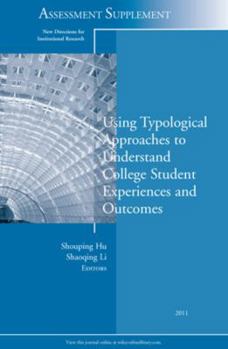Using Typological Approaches to Understand College Student Experiences and Outcomes: New Directions for Institutional Research, Assessment Supplement
Facing a new round of criticisms on the quality of undergraduate education in American colleges and universities, higher education administrators are eager to find--or create--effective programs and practices that can enrich student experiences and enhance outcomes. In order to do that, those who work at colleges and universities need to have a better understanding of their students. Institutional researchers, with access to a wealth of student data, have the analytical expertise to supply information that can guide institutional policy and practice. Typological frameworks particularly can be used to generate such information, and this volume presents rich examples of typological approaches to the study of college students. Typological research can reveal patterns in students' characteristics, attitudes, and behaviors and how those patterns are related to desirable outcomes such as learning and persistence, or to the nature, meaning, and utility of student-faculty interactions outside the classroom. Such information can help campus leaders and other concerned groups gain a deeper understanding of their students, design better targeted and intentional interventions to optimize student experiences, and maximize student learning and personal development outcomes. This is a special supplemental issue of New Directions for Institutional Research. Always timely and comprehensive, this series provides planners and administrators in all types of academic institutions with guidelines in such areas as resource coordination, information analysis, program evaluation, and institutional management.
Format:Paperback
Language:English
ISBN:1118296117
ISBN13:9781118296110
Release Date:December 2011
Publisher:Jossey-Bass
Length:93 Pages
Weight:0.30 lbs.
Dimensions:0.3" x 5.8" x 8.9"
Customer Reviews
0 rating





